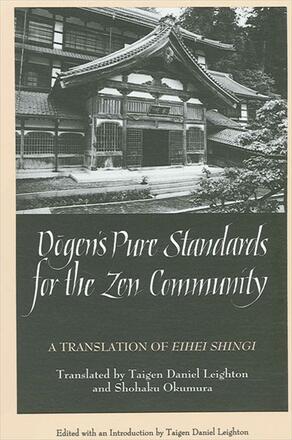
Dōgen's Pure Standards for the Zen Community
A Translation of Eihei Shingi
Alternative formats available from:
Presents a complete, annotated translation of Dogen's writing on Zen monasticism and the spirit of community practice. Dogen (1200-1253) is Japan's greatest Zen master.
Description
This is a complete translation of Eihei Shingi, the major writing by the Japanese Zen master Eihei Dogen (1200-1253) on monastic practice and the role of community life in Buddhism. Dogen was the founder of the Soto branch of Japanese Zen, but his teaching was not limited by any particular school of Buddhism. His writings are generally regarded today as a great summit of Japanese Buddhist philosophy, meditation practice, psychology, and poetic insight into the nature of reality.
Eihei Shingi contains Dogen's principal guidelines and instructions for everyday life and rituals in the monastic training center he established. Included are a collection of dramatic teaching stories, or koans, on the attitude and responsibilities for practitioners in the community, the only collection of traditional koans with this practical focus.
In addition to the translation, the book includes detailed annotation, a substantial introduction, glossaries of Japanese technical terms and persons mentioned, and lineage charts, all providing relevant background in historical and religious context.
Taigen Daniel Leighton is a priest and teaches at Green Gulch Farm Zen Center in Muir Beach, California. He also teaches at the Institute of Buddhist Studies at the Graduate Theological Union. Shohaku Okumura is Chief Priest and Head Teacher at the Minnesota Zen Meditation Center.
Reviews
"Dogen's Pure Standards is a very careful and readable translation of a very important work by Dogen which has just begun to receive attention. This text, a compilation of essays from different stages in his career concerning the rules and regulations of monastic life, is crucial for an understanding of Dogen's overall approach to Zen. The annotations the translators provide are very helpful for understanding the historical context of the main work. In short, this is a 'must read' for those interested in studies of Dogen, Zen, and Japanese Buddhism. " — Steven Heine, Chair, East Asian Studies, The Pennsylvania State University
"This book represents the best translation so far of a famous collection of essays that provide a great deal of concrete information on the practice of Zen monasticism. " -- Carl Bielefeldt, Stanford University